In recent U.S. national security documents, the relationship between the U.S. and China was labeled a strategic competition. What does this mean, and how should the U.S. pursue its national security interests in this context? The Daniel K. Inouye Asia-Pacific Center for Security Studies hosted a collaborative effort of the five U.S. Department of Defense Regional Centers in Honolulu Jan. 30-Feb. 1, 2019, to answer these questions.
This three-day workshop brought together more than 40 experts from the five Regional Centers and other U.S. Government organizations as well as several think tanks to focus on China’s activities across various regions and domains in an effort to identify where and how China’s influence is growing, and how this growing influence affects U.S. national security interests.
Day one started with a scene-setting presentation of the Chinese Communist Party’s (CCP’s) foreign policy, followed by each Regional Center providing a considered look at how China was pursuing its foreign policy objectives in each region. One participant noted, “I found that the most valuable aspect of this workshop was to hear security experts from every region of the world share real-world examples of how the PRC effectuates its foreign policy. From those informed exchanges, the workshop participants were able to identify a number of recurring tactics and practices of the PRC to advance its interests in the world.”
On day two, participants explored various cross-regional tools China used to achieve its foreign policy objectives, including messaging, economic tools, and military diplomacy. In the afternoon, workshop participants broke into three working groups to discuss the concept of influence, how China’s influence was created as a result of its regional activities, and how this influence affected U.S. national security interests.
Workshop participants focused on the U.S. response to these activities on day three, starting with a scene-setting presentation on strategic competition. Workshop participants then broke into working groups the remainder of the day to discuss strategies the U.S. could enact to either cooperate when interests converged, or compete when they did not.
“It was an honor to host a collaborative event by the five DoD Regional Centers, and the ability to sit down and hear these regional experts discuss China’s activities from different perspectives was incredible. I look forward to the next opportunity I can meet and work with these great professionals,” said Lieutenant Colonel Michael Burgoyne, academic lead of the workshop.
The findings from the workshop will be outlined in a publication to be released in summer 2019, and shared on the DKI APCSS website.


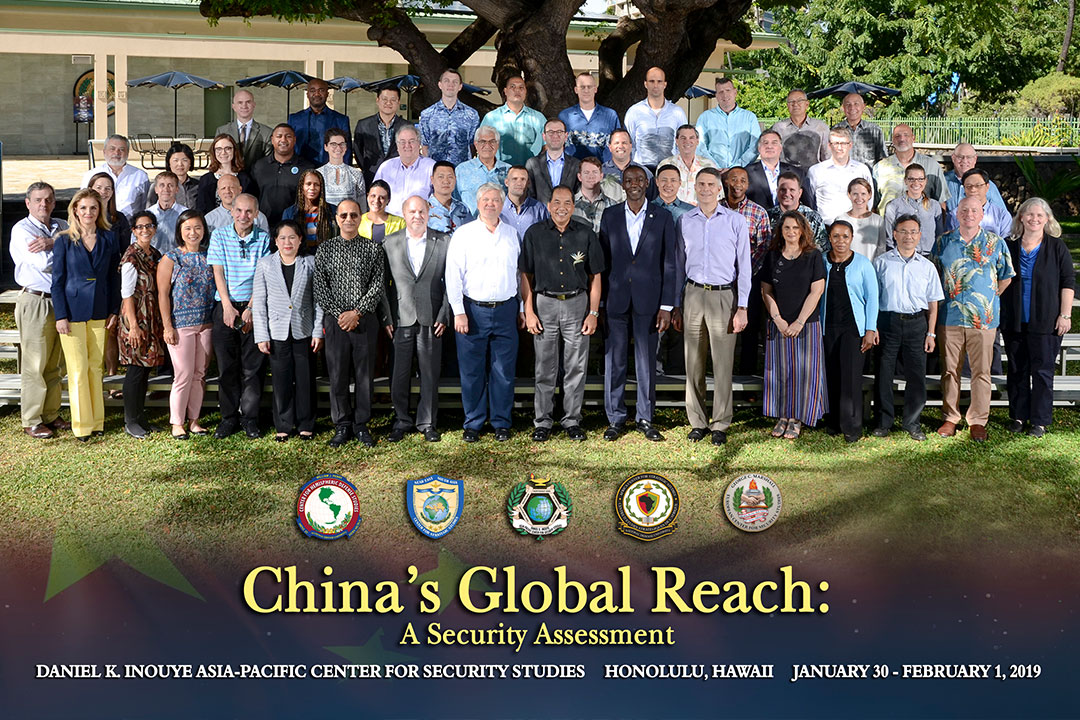
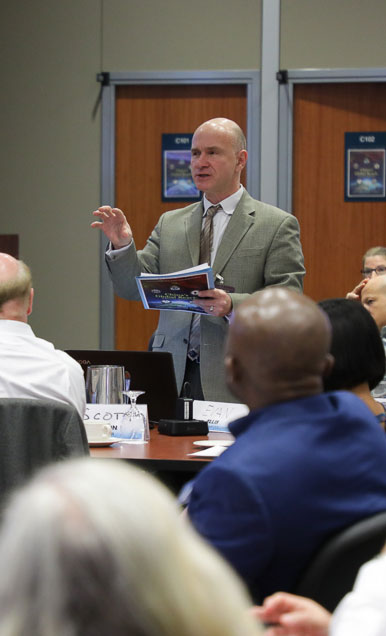
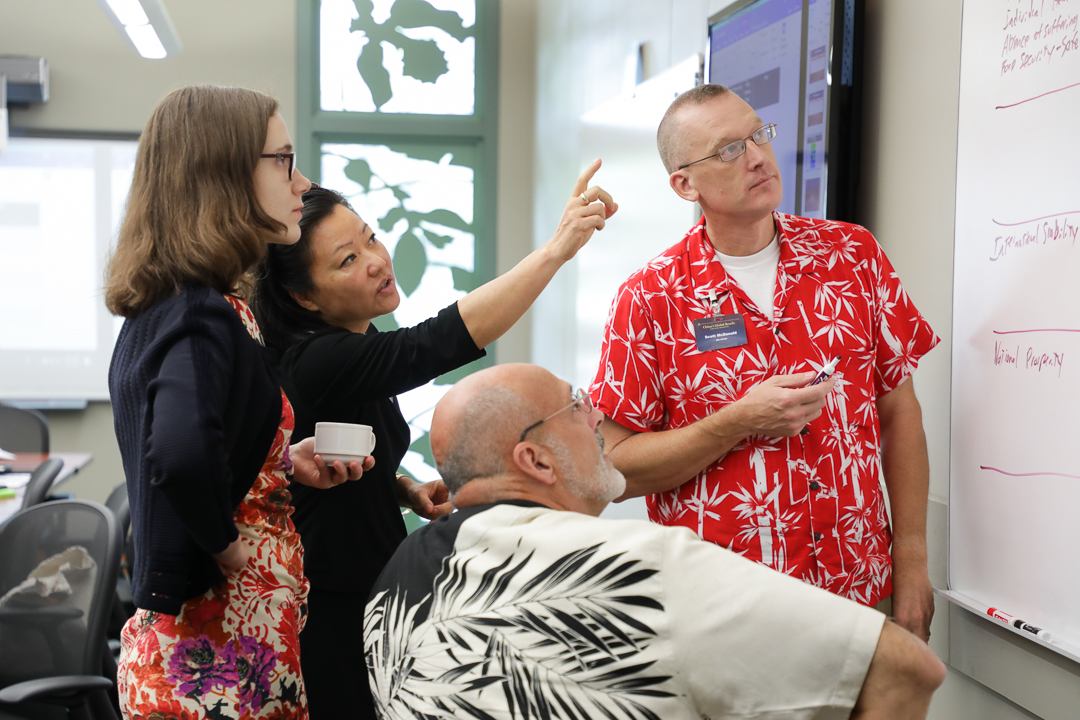
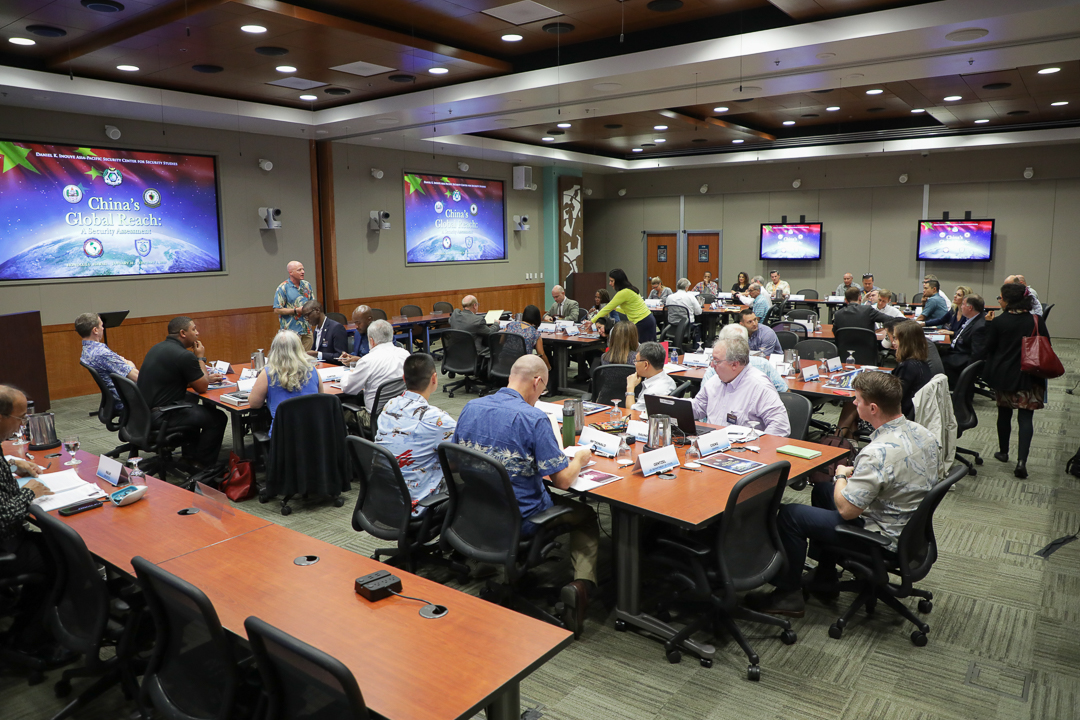

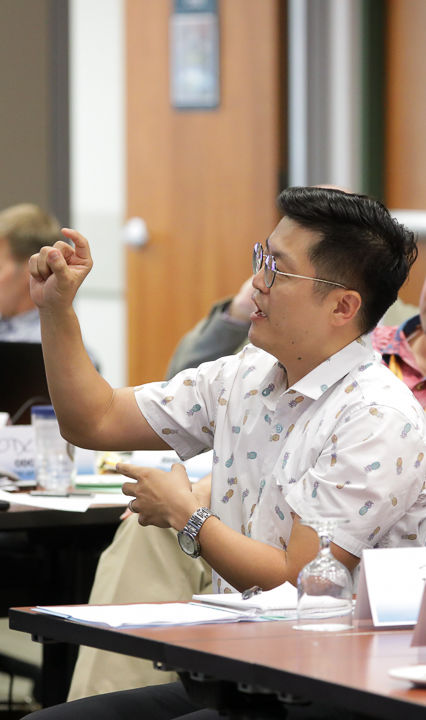
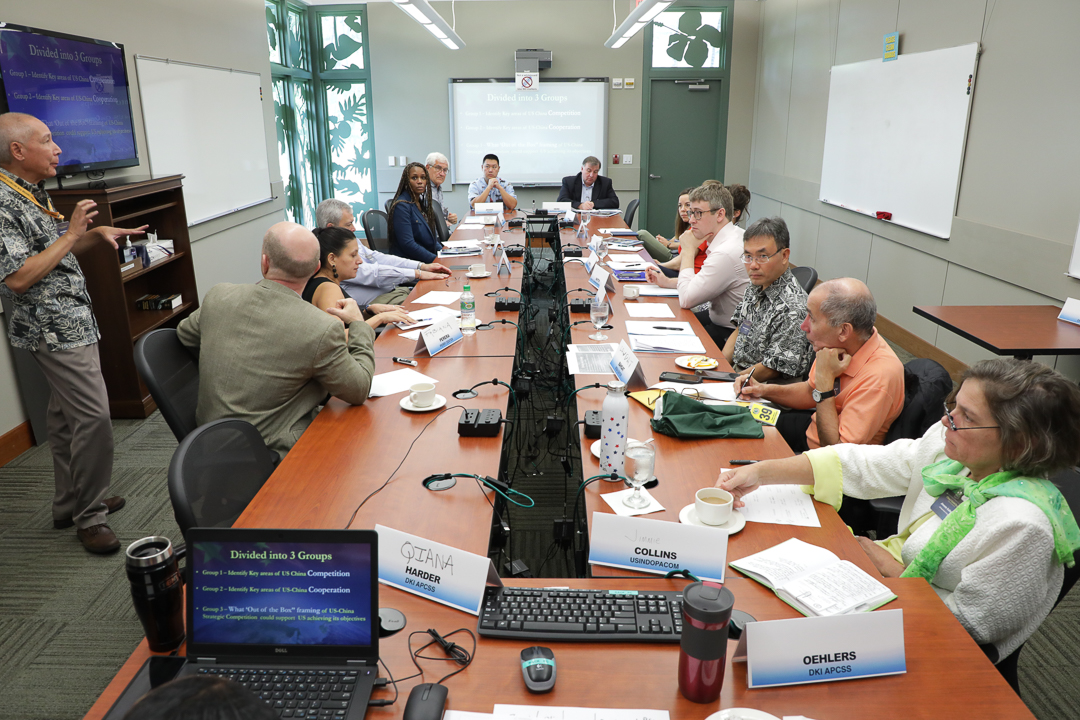

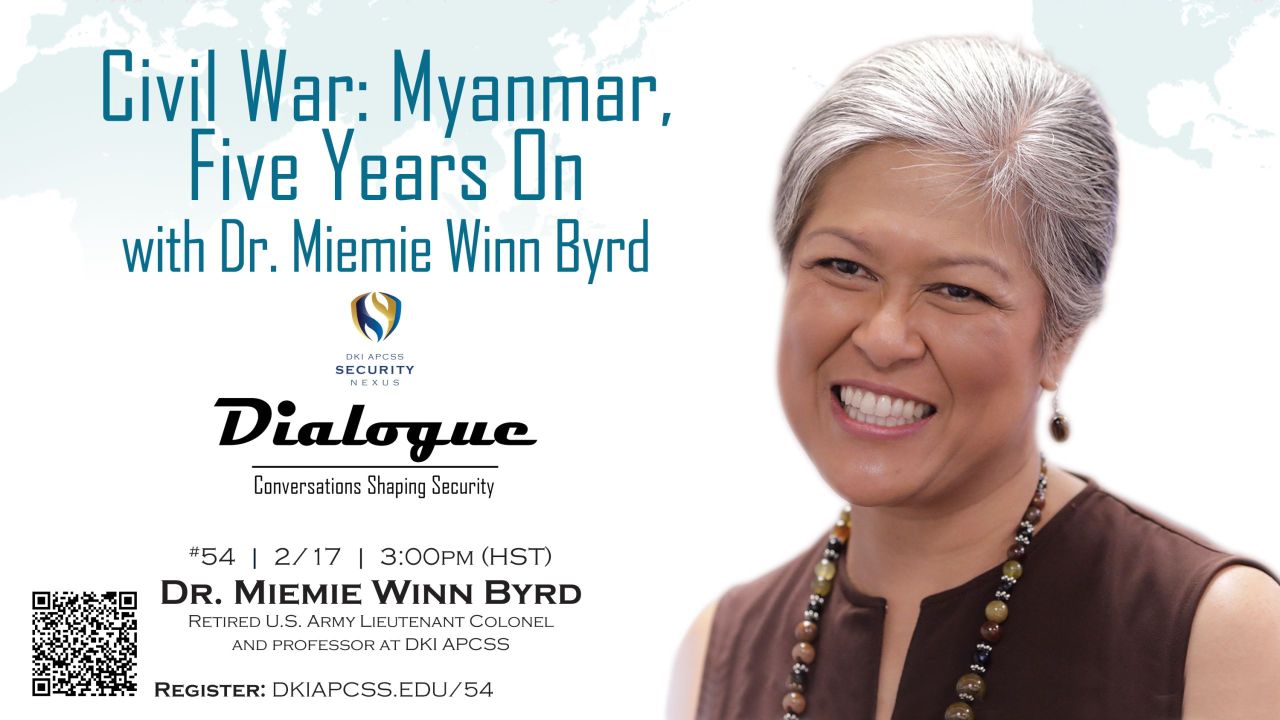
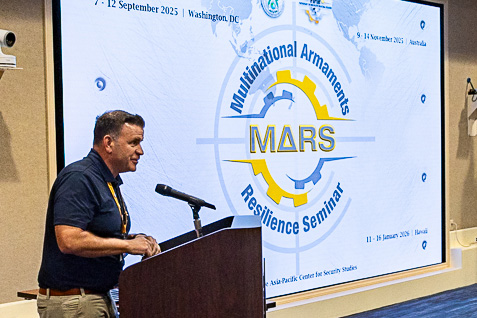
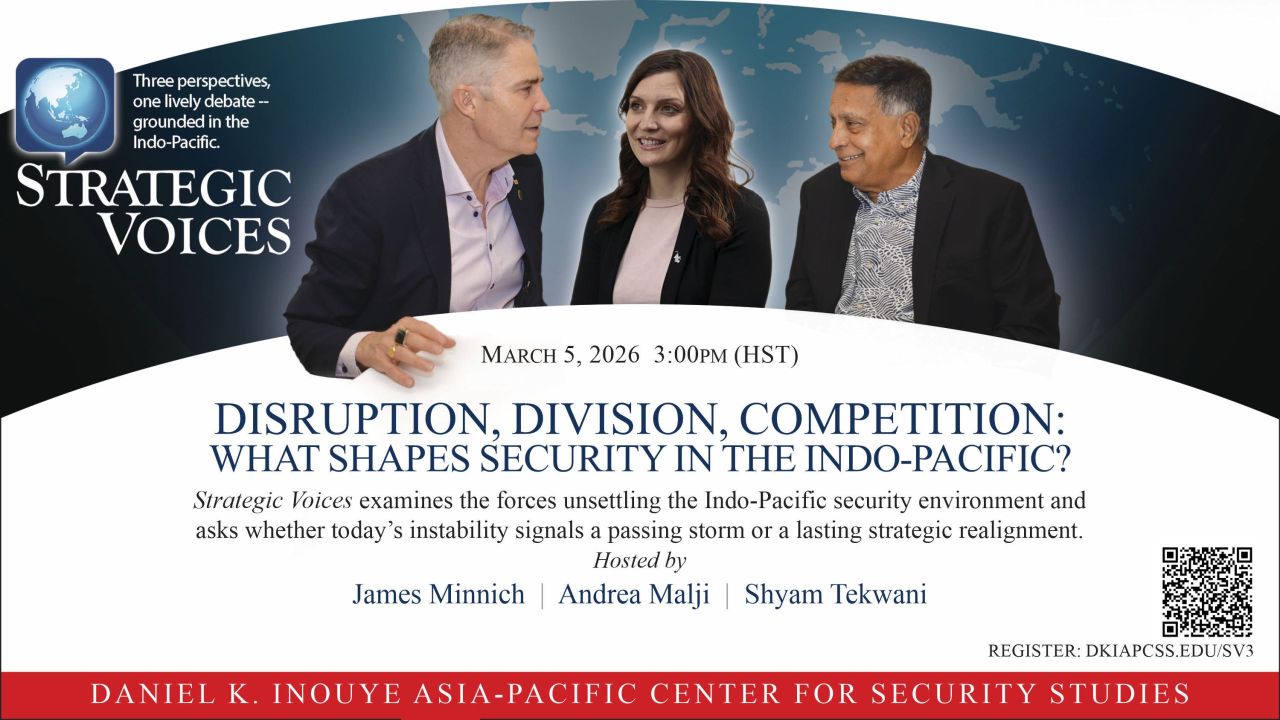




Thanks for updating us.